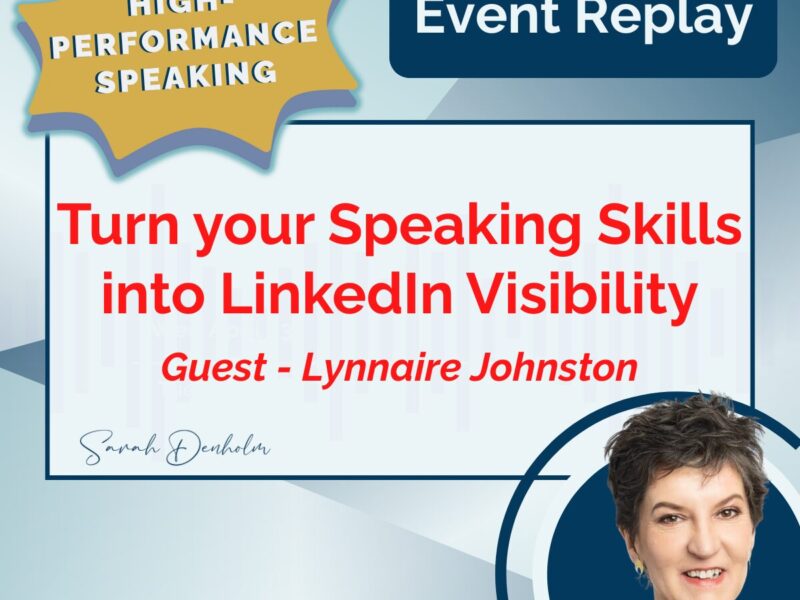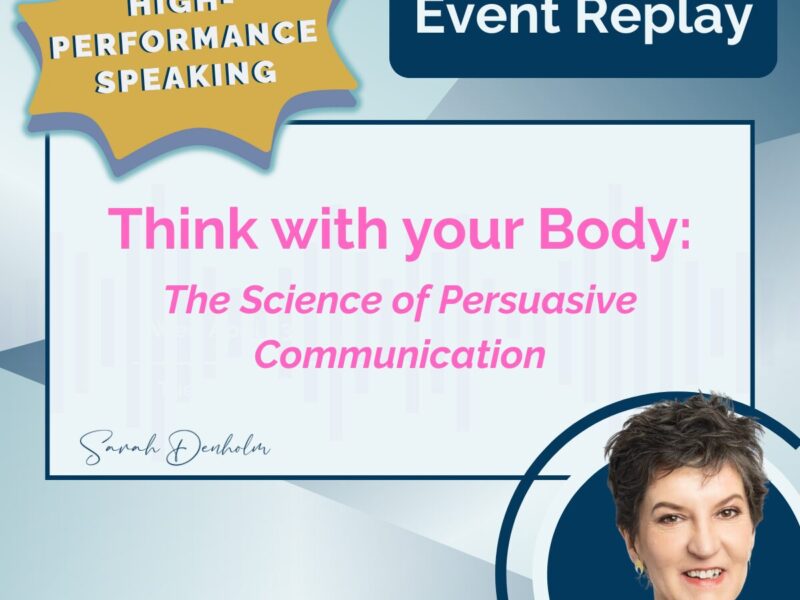In my last post I talked about how the expectations you set for yourself around your public speaking can really influence whether or not you achieve the results you’re after: the article is here if you missed it. And I suggested that according to the latest brain research – and what I’ve seen work for clients and myself – is this:
Aim very high long-term, and low, short-term.
Today I’m giving you a plan which you can try the next time you’re stressing out about your presentation and want to change your brain state to reduce your expectations to something more manageable:
1. Breathe
2. Stand tall, head up and shoulders open. These two steps send a message to your brain that you’re in a positive state, even though you’re not, and will help with step 3
3. Stop fighting yourself: just be where you are right now, not where your mind thinks you ought to be (you might want to read that sentence a few times!)
4. Ask yourself: “what is my unreasonable expectation here?”
5. Then ask: “what is a reasonable expectation instead?” Smile as you say this, convincing your brain that you’re ok, and when you come up with an answer, repeat the statement a few times with energy, and aloud if possible, to cement the new idea
6. Congratulate yourself on tuning in to your state and giving this exercise a go! And remember that if you weren’t able to do it this time, try to avoid judging yourself. Each time it happens is a new opportunity.
The goal is to practise coming out ahead of your expectations as often as possible. Then one day you’ll look up and realise that those high expectations you set yourself initially – you’ve achieved them!




